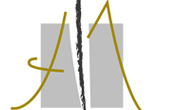Narcolepsy Treatment in Odenton, MD

What is Narcolepsy?
Narcolepsy is a chronic sleep disorder that affects the central nervous system and is primarily characterized by excessive daytime sleepiness (EDS) and nighttime sleep disturbances such as insomnia and nightmares. While there is no cure for narcolepsy, treatment - mostly through medication like antidepressants and stimulants - is available to address its symptoms. If you're suffering from narcolepsy and are looking for a narcolepsy specialist in Odenton, MD, call (410) 266-3613 or contact Annapolis Integrative Medicine online!
Narcolepsy Symptoms
Cataplexy is the sudden loss of voluntary muscle control during wakefulness. There are two types of narcolepsy: with cataplexy (type one) and without cataplexy (type two). In addition to presenting without cataplexy, type two narcolepsy is typically less severe than type one.
The main symptom of narcolepsy is excessive daytime sleepiness, which consists of falling asleep without warning for fifteen to thirty minutes - also called a sleep attack - and decreased alertness throughout the day.
Other narcolepsy symptoms may include:
- The temporary inability to move while falling asleep (sleep paralysis)
- Hallucinations that occur while falling asleep (hypnagogic hallucinations)
- Insomnia
- Falling asleep during an activity and continuing the activity without conscious awareness of behavior (automatic behaviors)
- Blurred or double vision
- Droopy eyelids (ptosis)
- Vivid, often disturbing dreams
- Sleep apnea
- Periodic leg movement disorder (PLMD) or restless leg syndrome (RLS)
Narcolepsy Diagnosis
Narcolepsy diagnosis can be complex and rely on several methods of evaluation, including:
- Detailed medical history
- Physical examination to identify or rule out other neurological conditions that could cause symptoms
- Questionnaires on daytime sleepiness
- Sleep logs or diaries
Laboratory tests that can be performed include:
- Polysomnography (PSG), which records multiple bodily processes and functions (brain waves, REM sleep, heart rate, breathing rate, and others) during sleep
- Multiple sleep latency test (MSLT), which measures how quickly a patient falls asleep during the day
- Maintenance of wakefulness test (MWT), which evaluates a patient's ability to stay awake during the day
- Blood test for human leukocyte antigen (HLA), which has been demonstrated to have a close association with narcolepsy
Type one narcolepsy is often diagnosed not only by the presence of cataplexy but by levels of a brain hormone (neurotransmitter) called hypocretin. Patients with type one narcolepsy often have no or low hypocretin; patients with type two narcolepsy have normal levels of hypocretin. Hypocretin levels can be measured through a spinal tap (lumbar puncture).
Narcolepsy Treatment in Odenton
Narcolepsy is most commonly treated with drug therapy, which often involves not only treating EDS with alertness-inducing drugs, but alleviating cataplexy, hallucinations, and paralysis.
Alertness-inducing drugs can include amphetamines, which are effective but can result in troublesome side effects like elevated blood pressure and anxiety, and stimulants like pemoline, armodafinil, and modafinil, which are less effective but also less likely to cause the aforementioned side effects.
Antidepressants--such as tricyclic antidepressants, selective norepinephrine reuptake inhibitors (SNRIs), and selective serotonin reuptake inhibitors (SSRIs)--are often prescribed for narcolepsy as they have been shown to treat cataplexy. SSRIs and SNRIs have also been demonstrated to be effective at treating hallucinations and sleep paralysis. Sodium oxybate is a sleep medication that is prescribed primarily for narcolepsy, as it treats both daytime sleepiness and insomnia.
If you have moderate or severe sleep apnea, your healthcare provider may also recommend a continuous positive airway pressure (CPAP) machine, which keeps the airway open during sleep. Behavioral changes that may help maintain a regular sleep-wake cycle include:
- Planned naps of 15 to 30 minutes
- Avoidance of alcohol, nicotine, caffeine, and large meals
- Regular exercise
- Regular exposure to bright light, especially sunlight
- Psychological counseling
Your healthcare professional may also recommend that accommodations be provided for school schedules or working conditions, such as allowing you to nap or take medication during the day. If you are narcoleptic, your healthcare provider may recommend that you avoid jobs with frequently shifting work schedules or that require motor vehicle driving.
Request Your Narcolepsy Treatment Consultation Today!
Narcolepsy can be inconvenient and debilitating, but it is treatable. Accommodations for school or work may also be available in the event that treatment is not completely effective.
To talk to a healthcare provider about treatment for narcolepsy in Odenton, call (410) 266-3613 or contact Annapolis Integrative Medicine online!
Annapolis Integrative Medicine
Address
1819 Bay Ridge AveSuite 180
Annapolis, MD 21403
(410) 266-3613
www.annapolisintegrativemedicine.com

